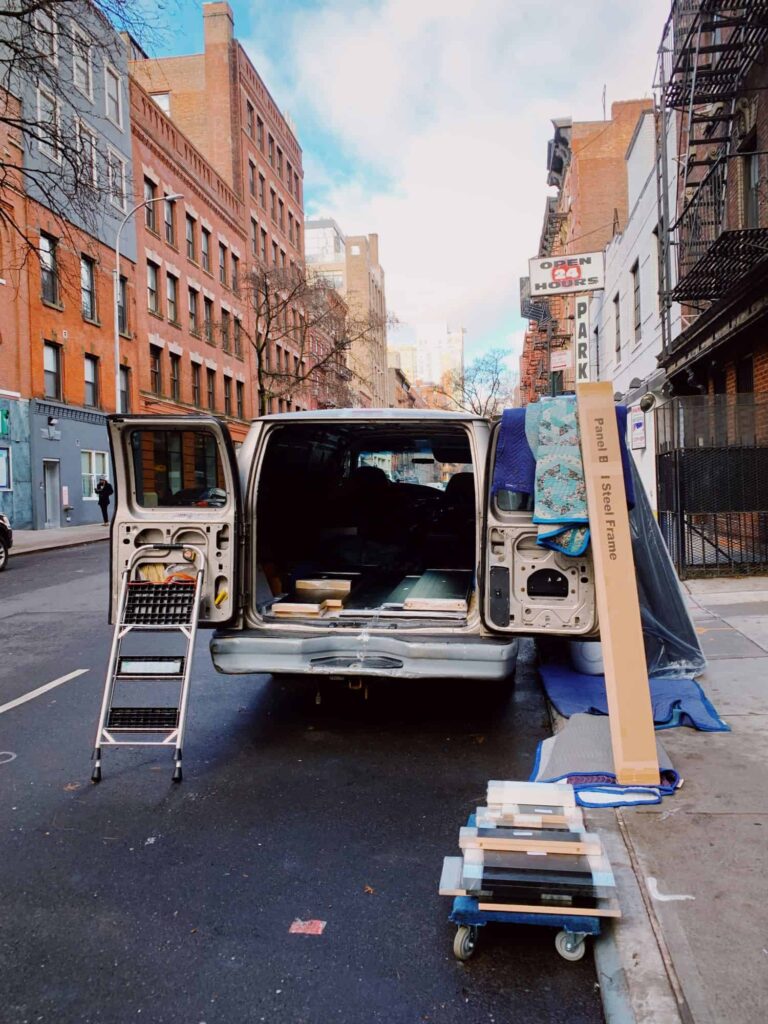
The fall semester is fast approaching, which can be both exciting and overwhelming if this is your first year in graduate school. If you are feeling unsure of how to prepare for your first semester in graduate school, today’s blog can help with that. With a few simple strategies, you can make the transition into your first semester of graduate school smooth and relatively stress-free. We’ll talk about how best to plan logistics, helpful resources, and more.
1. Plan ahead to avoid stress
When I started graduate school, I was most stressed about missing any important details. In the weeks leading up to the fall semester, we received lots of emails, all with important instructions and tasks to do before classes started. For example, you’re supposed to pick up your student ID, which gets you into all the Emerson buildings, before orientation. To make sure I kept track of everything I needed to do before the start of the semester, I made a big checklist. For tasks with deadlines, I would set reminders on my phone with the deadline listed. This system helped me feel a lot less scattered and much more prepared when I made the move to Boston and everything started moving quickly.
Speaking of moving, if you’re using a moving truck, you’ll want to purchase a parking permit for it. Parking in Boston is hard to find, and a permit allows you to reserve parking space by your apartment. The last thing you want on a hot September move-in day is to have to park your moving truck blocks away from your house. To get a parking permit for a moving truck, you can apply online or in person. Getting a permit in person at City Hall is great because you get your permit the same day. However, if the move to Boston is far, you may have to apply for your permit online. If you choose this route, you’ll want to order your permit at least two weeks before your move-in date to ensure the permit gets to you in time.
2. Be patient with yourself and others
No matter how well you plan ahead, there are bound to be some unexpected turns as you start graduate school. Maybe you accidentally get on the wrong subway train or lose your keys somewhere. Whatever comes up during the start of the semester, give yourself space to make mistakes. Transition is hard for everyone, especially if you’re moving far from family and friends. Remember to be kind and patient with yourself and those around you as you settle into graduate school.
3. Utilize your resources
Because starting graduate school is such a transitional time, you may need some extra support. Whether that support is counseling, extra self-care, talking to a loved one, or something else, having a little extra help can make the transition into graduate school much smoother.
If you paid the Student Health Fee for the fall semester, you have free access to counseling services at Emerson’s Wellness Center. Through the Wellness Center, Emerson students can receive consultations, individual therapy, group therapy, and some psychiatric medication services. These counseling services are a great place to start if you need someone to talk to as you start graduate school. Even if you didn’t pay the Student Health Fee, the Wellness Center offers services to Emerson graduate students for a fee. Another option is to call your insurance company and ask them for a list of mental health providers covered by your insurance in the Boston area. From there, you can reach out to providers about setting up an appointment.
Another way to find support is through community. You might check out an event offered through Emerson’s Social Justice Collaborative. One great event they host regularly is a trauma-informed yoga class. You might also join a graduate student organization or attend neighborhood events. Many Boston neighborhoods have Facebook groups where people can announce events and share community announcements. Sometimes building a community of friends can help the transition into graduate school feel more manageable.
Lastly, if faith or spirituality are important to your wellness, tapping into a spiritual community can be another form of support. Emerson’s Department of Spiritual Life is a great place to start. The department is a multifaith resource, offering space for individual meditation, group gatherings, and more.
4. Run on T time
When I first moved to Boston, I assumed that my navigation apps told me exactly how long it would take to get to my destination using the train. However, because the MBTA (also called the “T”) often has unexpected delays, Google Maps and Apple Maps often underestimate how long it will take to get somewhere. I learned this the hard way, but with a little planning, you can avoid being late because of the T.
As a rule of thumb, I add around 20-30 minutes to the estimated time my map says it will take to get somewhere. With this strategy, I’m usually where I need to be 5-10 minutes early, rather than 10-20 minutes late.
If you want to be extra sure you’ll be on time, you can always practice your route in advance. I did this for my first semester classes, taking the train from my apartment and seeing how long it took me to get to the classroom. When the first day of class came, I felt much more calm knowing where I was going. Especially if you commute to class during rush hour, it can be helpful to know where you need to go as you navigate through a big crowd in the subway.
5. Prepare to Walk
If you’re used to driving everywhere, attending graduate school in Boston will be a shift for you. Because there is such limited parking in the city, it’s much easier to get around using public transportation than to drive.

As such, you’ll want to prepare for plenty of walking–for reference, I walk an average of 2-3 miles per day. There are a few tricks I’ve learned to make my life easier as I walk from place to place.
First, I would think about footwear. I buy supportive insoles for the shoes I wear daily, and I have definitely noticed a difference. This is a great option if your favorite shoes weren’t designed for lots of walking. Alternatively, if you have sneakers with good support, I would suggest wearing them as much as possible. Wearing supportive shoes will make your feet much happier at the end of each day!
You’ll also want to bring water with you everywhere. Many people carry water bottles with them these days, and I would recommend it in the city. There’s nothing worse than getting to work or the subway station and being parched with no water fountains in sight. If it’s within your budget, I would suggest getting an insulated water bottle. Especially in the warmer months, having cold water on hand is a lifesaver.
Starting graduate school is both exciting and can cause some stress. Hopefully, this blog will help you prepare for your first semester in graduate school. For more tips for navigating graduate school and city living, be sure to check out our Tips and FAQs section on the blog. We can’t wait to see you in the fall!



Leave a Reply